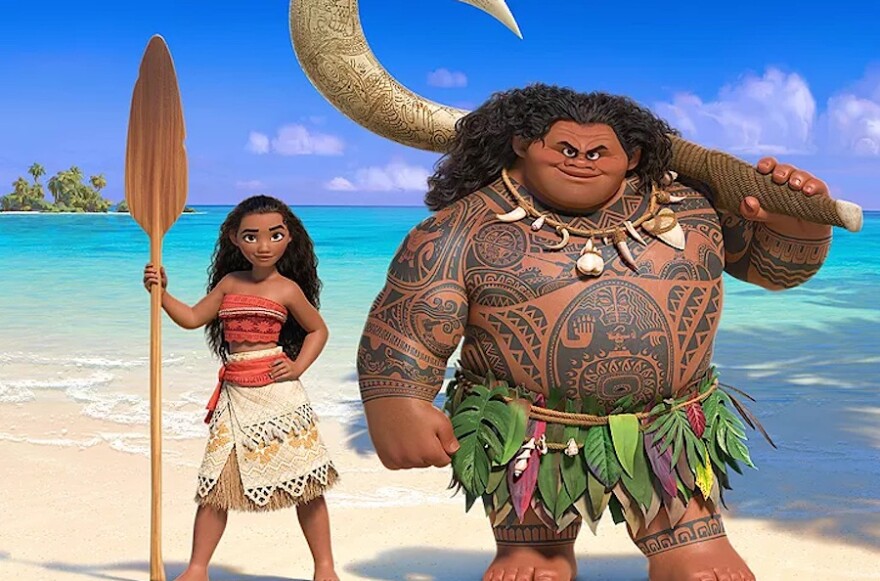Disney announced it will no longer sell a costume many complained was offensive and compared to blackface. The Halloween outfit depicted Maui, a Polynesian demigod who’s also a character in the upcoming film, “Moana.”
It took less than a week after Disney debuted the costume for the backlash to begin. Many took to Twitter in outrage, calling out Disney for its costume faux pas.
As a Poly I support our folk involved in #MOANA. But this? NO.Our Brown Skin/Ink's NOT a costume. @DisneyMoana pic.twitter.com/X0pacppAqV
— TheBlackSheep.com (@74MasterBlaster) September 18, 2016
Dear #Disney , our brown skin is not a costume. Get outta here with that crap. Sincerely, a furious brown skinned Pacific Islander. #Moana
— Taina Talei (@tainatalei) September 19, 2016
The getup includes a brown skin bodysuit covered in Polynesian tattoos and a green leaf skirt. Photos also show a sharks tooth necklace and a wig of long, dark curly hair.
All of this was upsetting to Joren Plunkett, an Oahu-born graduate student currently living in Utah. "Making the costume in brown skin, with those tattoos is cultural appropriation"
Plunkett who’s part Native Hawaiian and part Tahitian, found the idea of people wearing another race’s skin especially problematic.
"Because I don't get to take off this brown skin," she said, referring to her own ethnicity. "So, for Disney to make the costume in brown skin further motivates the idea of race being a performance, or something that we get to choose."

On Wednesday, Disney issued an apology for the costume, which was pulled from shelves and taken offline. "The team behind Moana has taken great care to respect the cultures of the Pacific Islands that inspired the film, and we regret that the Maui costume has offended some," read a statement from a Disney representative. "We sincerely apologize and are pulling the costume from our website and stores."
But for some, that was too little, too late.
"This costume should have never been made in the first place," said Tevita K?‘ili a cultural anthropology professor at Brigham Young University Hawai‘i. He says the whole idea of creating a costume for Maui is offensive and removes any historical or cultural context.
"It's difficult for me to see how Disney can benefit and make a lot of money off of someone else's culture," said K?‘ili. "Especially someone as significant as Maui."
The demigod Maui is an important and revered figure for Pacific Islanders. Marama Fox, a co-leader of New Zealand’s indigenous Maori Party, says it was Maui who pulled North Island from the sea. The island’s indigenous name even translates to Maui’s fish.
"Our stories tell of Maui fishing up the North Island of our country. He was a warrior who overcame many things, introduced many things, fought with the Goddess of Fire," she said. "He's a strong, healthy, strapping man in my mind."
Fox says that’s a far cry from the overweight, comical cartoon version of Maui depicted in Moana. She was equally offended by the Halloween costumes.
"It's a bastardization of culture," said Fox. "Our t? moko, or tattoos, are significant and have deep spiritual meaning. They're not something to be misrepresented in the way that I believe they have been by Disney."
For some this was a clear example of the importance of consulting the native culture represented in the film. Oriana Leao is a UH M?noa graduate student finishing her research on the misrepresentation of k?naka maoli women in film.
"Especially for indigenous people. Art is identity for us. It's how we express not only the pretty parts of our culture, but it's also how we express the struggles," said Leao. "And because of that, there is careful care in order to make sure those mo'olelo are expressed in a proper fashion."
The recent controversy over the depiction of Maui show film companies like Disney still have a long way to go.




